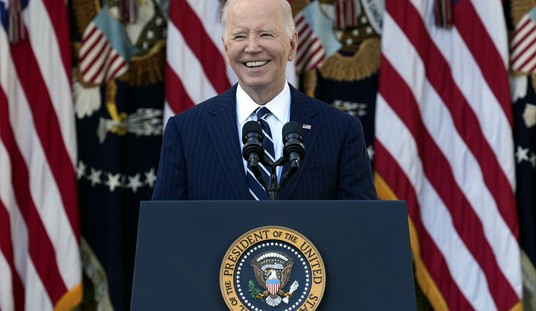Secretary of State John Kerry said at a House Foreign Affairs Committee hearing on the Iran nuclear deal today that he’s not aware of any Iranian plans to destroy the United States, but he has heard the mullahs call for America to die.
Rep. Ted Poe (R-Texas), who chairs the Terrorism, Nonproliferation and Trade Subcommittee, asked Kerry, “Is it the policy of the ayatollah, if you can answer for him, that Iran wants to destroy the United States? Is that still their policy, as far as you know?”
“I don’t believe they’ve said that. I think they’ve said ‘Death to America’ in their chants, but I have not seen this specific,” Kerry replied.
“Well, I kind of take that to mean that they want us dead. That would seem like that would be their policy. He said that. You don’t think that’s their policy? I’m not mincing words. Do you think it’s their policy to destroy us?” Poe asked.
“I think they have a policy of opposition to us and a great enmity, but I have no specific knowledge of a plan by Iran to actually destroy us. I do know that the rhetoric is — is beyond objectionable,” Kerry said. “I know that we, you know, are deeply concerned with Iran’s behavior in the region, deeply concerned with their past activities.”
Rep. Mo Brooks (R-Ala.) noted that Iranian Brigadier General Mohammad Reza Naghdi, who has previously said “we have no option but to have the Zionist regime wiped off the map,” just three months ago said “Israel’s destruction is non-negotiable.”
Kerry said that “accurately reflects some people’s rhetoric and some people’s attitude.”
“I don’t think it’s possible for Iran to do that,” the secretary of State added.
Pressed again on Supreme Leader Ayatollah Ali Khamenei’s recent rally at which “death to America” was chanted, Kerry said the threats “reflect an attitude and rhetorical excess, but I see no evidence that they have a policy that is implementing that against us at this point in time.”
When Brooks asked if terrorists supplied by Iran would try to kill Americans or Israelis, Kerry replied, “Well, they may. They may.”
Earlier in the hearing, Ranking Member Eliot Engel (D-N.Y.) listed many reasons for his deep “trepidation” about the deal, including Iran’s threats to the U.S.
“Barely a week after the Iranian’s signed the deal with us there was the supreme leader, the ayatollah, chanting, ‘Death to Americans, death to Israel.’ You would think that after an agreement was signed with us there might be a modicum of goodwill that perhaps they would keep quiet for a week or two, or a month, but it went back to business as usual,” Engel said. “How can we trust Iran when this type of thing happens? It is very disconcerting.”
Chairman Ed Royce (R-Calif.) noted that “we’re presuming Iran is going to change its behavior, and that behavior did not change last weekend when they were chanting again ‘death to America.'”
“There is no presumption in here about what Iran will or won’t do. There is one objective. Make sure they can’t get a nuclear weapon,” Kerry countered. “On the backside of that, we have a very robust initiative that will push back against Iran’s other activities.”
Rep. Steve Chabot (R-Ohio) later asked Kerry why, if the deal’s so good, opposition in Israel is so deep-seated.
“We fully understand every Israeli has concerns, have fears. There are concerns about the region they live in, about the nature, the rhetoric that’s used. Death to Israel, death to America,” Kerry replied. “Everybody is concerned. Which is why this is not based on some element of a dream they’re going to change or some element of trust.”
Under questioning from Dem Rep. Alan Grayson (Fla.), Kerry admitted releasing sanctioned funds for Iran may increase Tehran-sponsored terrorism — or at least what we call terrorism.
“We have no way to know. I presume in some places possibly, only in the sense that they are committed to certain things that we interpret as terrorism, they don’t, and we’re going to continue to conflict on those issues,” Kerry said.









Join the conversation as a VIP Member